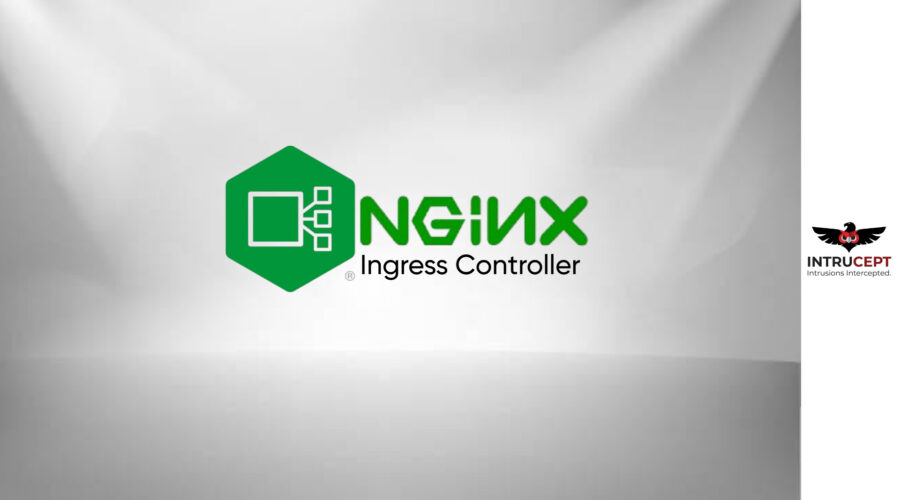Critical NGINX Ingress Vulnerabilities Expose Kubernetes Clusters to Compromise
Security Advisory
Summary:
The Kubernetes Ingress NGINX Admission Controller has detected 5 significant security vulnerabilities affecting all versions of the ingress-nginx controller prior to v1.12.1 and v1.11.5. Here are the cve ids CVE-2025-1974, CVE-2025-1098, CVE-2025-1097, CVE-2025-24514, and CVE-2025-24513.
| Maintainer | Kubernetes ingress community |
| Severity | Critical |
| CVSS Score | 9.8 |
| No. of Vulnerabilities Patched | 05 |
| Actively Exploited | No |
| Exploited in Wild | No |
| Patch Available | Yes |
| Advisory Version | 1.0 |
Overview
Admission Controllers frequently don’t require authentication and essentially function as web servers, introducing an additional internal network-accessible endpoint in the cluster. This architecture allows attackers to access them directly from any pod in the network, significantly increasing the attack surface.
The most critical of these, CVE-2025-1974, allows attackers on the pod network to remotely execute code and gain full control of the cluster without authentication.
Although there has not been any active exploitation in the wild, this vulnerability poses a serious risk as it could enable attackers to take complete control of a cluster.
The issue was publicly disclosed on March 24, 2025, and security patches have been released.
| Vulnerability Name | CVE ID | Product Affected | Severity | CVSS Score |
| Admission Controller Remote Code Execution (RCE) Vulnerability | CVE-2025-1974 | Ingress NGINX Admission Controller | Critical | 9.8 |
| Configuration Injection via Unsanitized auth-tls-match-cn annotation | CVE-2025-1097 | High | 8.8 | |
| Configuration Injection via Unsanitized Mirror Annotations | CVE-2025-1098 | High | 8.8 | |
| Unsanitized auth-URL Injection Vulnerability | CVE-2025-24514 | High | 8.8 | |
| Auth Secret File Path Traversal Vulnerability | CVE-2025-24513 | Medium | 4.8 |
Technical Summary
| CVE ID | System Affected | Vulnerability Details | Impact |
| CVE-2025-1974 | Ingress NGINX Controller v1.12.0 & v1.11.4 and below versions | The Validating Admission Controller does not properly check incoming annotations, allowing attackers on the Pod network to inject configurations and potentially execute arbitrary code across the entire cluster. | Full Kubernetes cluster compromise |
| CVE-2025-1097 | Improper validation of the auth-tls-match-cn annotation allows malicious annotation values to override controller configurations. | Remote code execution | |
| CVE-2025-1098 | Unsafe input handling in mirror annotations could result in unauthorized configuration manipulation. | Config injection, security bypass | |
| CVE-2025-24514 | Unsanitized input from auth-URL annotations can allow malicious URLs to modify ingress-controller behavior. | Remote code execution | |
| CVE-2025-24513 | A path traversal issue in handling auth secret files could let attackers access sensitive information. | Information disclosure |
Remediation:
- Apply Patches Promptly: Immediately upgrade to ingress-nginx v1.12.1, v1.11.5 or latest versions to mitigate the vulnerabilities.
- Temporarily Disable the Validating Admission Controller: It is mandatory to upgrade. If upgrading is not immediately possible, you can temporarily disable the Validating Admission Controller.
General Recommendations:
- Set strict RBAC rules to control who can change ingress and webhook settings.
- Disable dynamic admission controllers if they aren’t needed.
- Monitor cluster audit logs for unusual ingress creation activities and suspicious annotations.
- Conduct security reviews and scans for clusters that have not recently been updated.
- Regularly check ingredients for weak or unsafe configurations.
Conclusion:
The Kubernetes ingress-nginx vulnerabilities disclosed in March 2025 are among the most severe to date, with CVE-2025-1974 posing a real threat of full cluster compromise. All organizations running affected versions must apply patches or mitigation steps immediately.
The vulnerabilities found are affecting the admission controller component of Ingress NGINX Controller for Kubernetes and highlight the importance of strict configuration validation and access control in Kubernetes environments.
Security researchers from Wiz found that 43% of cloud environments are vulnerable to these vulnerabilities. They uncovered over 6,500 clusters, including Fortune 500 companies, that publicly expose vulnerable Kubernetes ingress controllers’ admission controllers to the public internet—putting them at immediate critical risk.
References:

